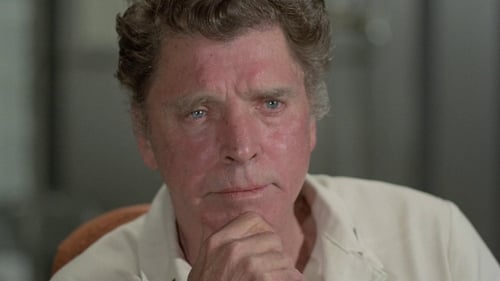Dieter Matzka
出生 : 1939-06-30, Znojmo, Czechoslovakia [now Czech Republic]
死亡 : 2012-04-02

Camera Operator
Dennis, an American private eye, is sent to Germany to find out as much as possible about typical Germans and typically German behaviour. Disguised as a TV reporter he sets sail for Germany where we follow him interviewing a wide variety of people, from politicians and intellectuals to policemen, demonstrants and ordinary people in the street. All this, however, is not what the film is really about, for "Deckname Dennis" is actually a satirical documentary about all those extremely odd people, groups and societies whose attitudes and behaviour are far too outrageous for anybody to take seriously. Therefore ALL the documentary bits are real, i.e. the people really thought they were being interviewed by an American reporter, and so they gladly presented an insight into their beliefs, ideas and goals.

Director
Documentary film.

Director of Photography
New York, 1941. Shortly before his joint suicide with Lotte, Stefan Zweig meets up once more with his first wife Friderike in order to write his last work, "The world of yesterday". Flashback: farewells that anticipate something.

Director
New York, 1941. Shortly before his joint suicide with Lotte, Stefan Zweig meets up once more with his first wife Friderike in order to write his last work, "The world of yesterday". Flashback: farewells that anticipate something.

Producer
Since the spring of 1943 and during the national socialist regime, a branch of the Mauthausen concentration camp had been located in the Upper Austrian village of Zipf. The prisoners were forced to work in a factory in which the propellants for the "Wunderwaffe" (wonder weapon), the V2 rocket were tested. Most of the people who live in the vicinity of the former concentration camp deny this.
A documentary film which confronts a historic actuality with oral witnesses.

Editor
Since the spring of 1943 and during the national socialist regime, a branch of the Mauthausen concentration camp had been located in the Upper Austrian village of Zipf. The prisoners were forced to work in a factory in which the propellants for the "Wunderwaffe" (wonder weapon), the V2 rocket were tested. Most of the people who live in the vicinity of the former concentration camp deny this.
A documentary film which confronts a historic actuality with oral witnesses.

Director of Photography
Since the spring of 1943 and during the national socialist regime, a branch of the Mauthausen concentration camp had been located in the Upper Austrian village of Zipf. The prisoners were forced to work in a factory in which the propellants for the "Wunderwaffe" (wonder weapon), the V2 rocket were tested. Most of the people who live in the vicinity of the former concentration camp deny this.
A documentary film which confronts a historic actuality with oral witnesses.

Writer
Since the spring of 1943 and during the national socialist regime, a branch of the Mauthausen concentration camp had been located in the Upper Austrian village of Zipf. The prisoners were forced to work in a factory in which the propellants for the "Wunderwaffe" (wonder weapon), the V2 rocket were tested. Most of the people who live in the vicinity of the former concentration camp deny this.
A documentary film which confronts a historic actuality with oral witnesses.

Director
Since the spring of 1943 and during the national socialist regime, a branch of the Mauthausen concentration camp had been located in the Upper Austrian village of Zipf. The prisoners were forced to work in a factory in which the propellants for the "Wunderwaffe" (wonder weapon), the V2 rocket were tested. Most of the people who live in the vicinity of the former concentration camp deny this.
A documentary film which confronts a historic actuality with oral witnesses.

Director of Photography
A gentle and melancholic love story set before the ironically depicted background of the Austrian Post Office.

Cinematography
German film.

Camera Operator
A renegade USAF general, Lawrence Dell, escapes from a military prison and takes over an ICBM silo near Montana and threatens to provoke World War 3 unless the President reveals details of a secret meeting held just after the start of the Vietnam War between Dell and the then President's most trusted advisors.

Director of Photography
A young textile worker attempts to reunite with his love and is shot by border guards. A semi-documentarian movie with a strong pacifist message.

Director of Photography

Camera Operator
This spectacular opera film was taped in 1967 and is based on the 1966 Salzburg Festival production directed by Herbert von Karajan himself, who also conducts the fabulous Vienna Philharmonic Orchestra. The production features the three greatest exponents of their respective roles at the time: Grace Bumbry’s magnificently seductive-toned Carmen, Mirella Freni’s ineffably lovely, touching Micaëla and Jon Vickers’s thrillingly manic-depressive Don José. On its release the film was hailed by Die Presse, (Vienna) as a “unique artistic event”, while Le Monde felt that Karajan’s production brought “a whole new dimension” to the opera, “combined with a magisterial interpretation”. A classical and utterly dramatic approach to probably the world's most beloved opera – Karajan’s Carmen is as much a delicacy for opera fans as it is a perfect starter for newcomers.











